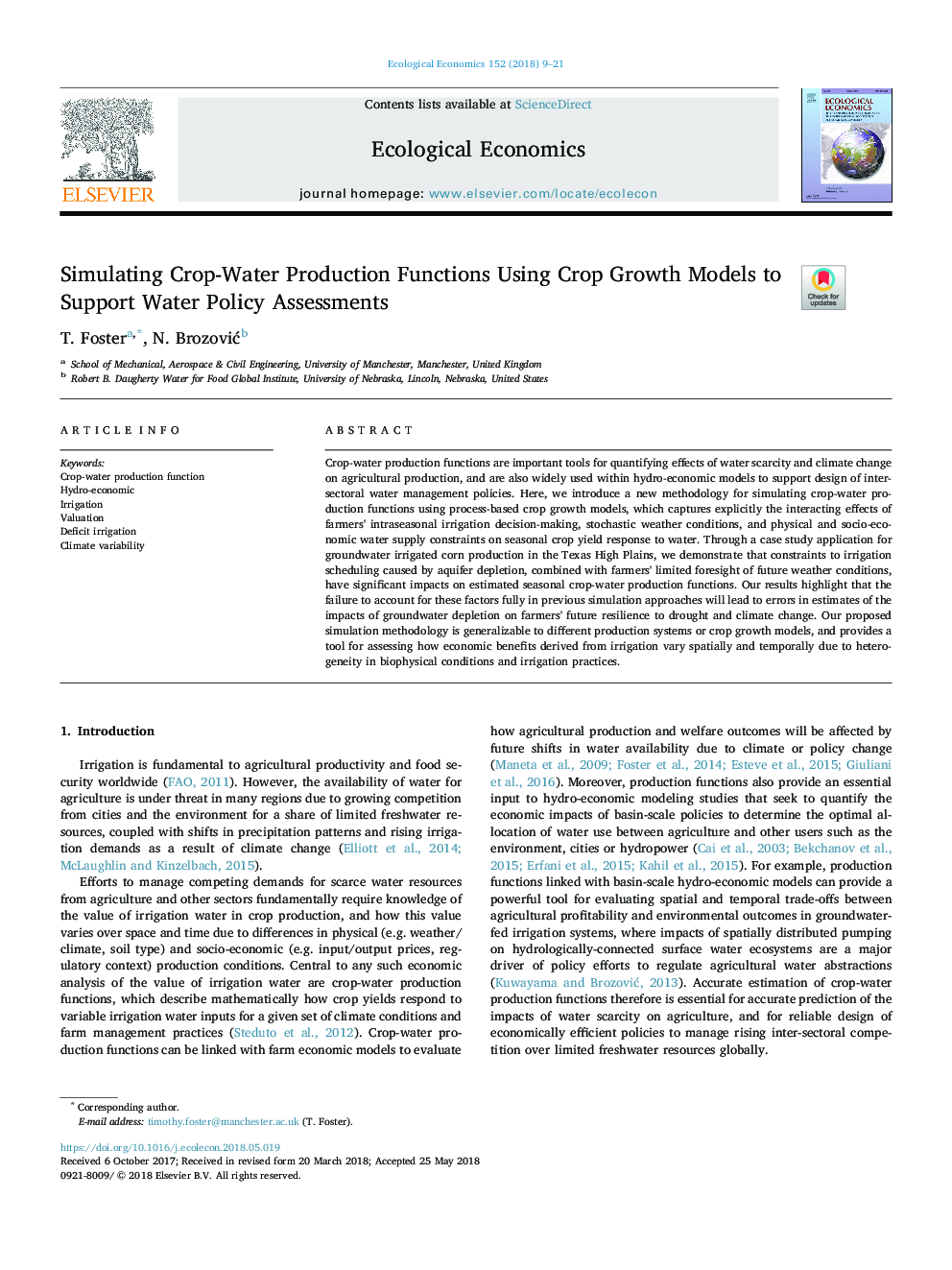| Article ID | Journal | Published Year | Pages | File Type |
|---|---|---|---|---|
| 7343875 | Ecological Economics | 2018 | 13 Pages |
Abstract
Crop-water production functions are important tools for quantifying effects of water scarcity and climate change on agricultural production, and are also widely used within hydro-economic models to support design of inter-sectoral water management policies. Here, we introduce a new methodology for simulating crop-water production functions using process-based crop growth models, which captures explicitly the interacting effects of farmers' intraseasonal irrigation decision-making, stochastic weather conditions, and physical and socio-economic water supply constraints on seasonal crop yield response to water. Through a case study application for groundwater irrigated corn production in the Texas High Plains, we demonstrate that constraints to irrigation scheduling caused by aquifer depletion, combined with farmers' limited foresight of future weather conditions, have significant impacts on estimated seasonal crop-water production functions. Our results highlight that the failure to account for these factors fully in previous simulation approaches will lead to errors in estimates of the impacts of groundwater depletion on farmers' future resilience to drought and climate change. Our proposed simulation methodology is generalizable to different production systems or crop growth models, and provides a tool for assessing how economic benefits derived from irrigation vary spatially and temporally due to heterogeneity in biophysical conditions and irrigation practices.
Related Topics
Life Sciences
Agricultural and Biological Sciences
Ecology, Evolution, Behavior and Systematics
Authors
T. Foster, N. BrozoviÄ,
